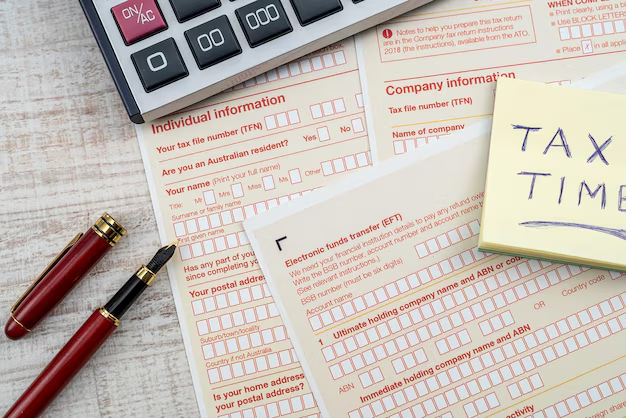When Will the IRS Release Refunds in 2025? Your Comprehensive Guide
As tax season 2025 approaches, taxpayers across the United States are gearing up to file their tax returns and eagerly awaiting any refunds due to them. The excitement of receiving a tax refund can be palpable, but understanding when and how refunds are processed by the IRS is crucial for effective financial planning. This guide delves deep into the expected timelines for IRS refund releases in 2025, and explores various factors influencing these timelines. We'll also cover some practical tips to ensure a smooth refund process and address commonly asked questions.
Understanding the Refund Timeline
How Does the IRS Process Refunds?
To understand when refunds will be released in 2025, it's essential to grasp the standard process the IRS follows:
- Submission of Returns: Once taxpayers file their returns, the IRS processes them in the order they are received.
- Verification: The IRS verifies the information provided, checking for errors or discrepancies, which can result in delays if found.
- Approval for Refund: After verification, if the return results in a refund, the IRS approves the refund and schedules it for payment.
- Issuance of Refund: Refunds can be issued via direct deposit or a paper check, depending on the taxpayer's choice.
Key Dates for 2025
Historically, the IRS has started processing tax returns in late January, usually around the third week of the month. For 2025, taxpayers can anticipate a similar schedule. The IRS processes returns daily, except weekends and some holidays, meaning the first refunds could potentially be issued by the beginning of February for those who electronically file and request direct deposit.
Factors Affecting Refund Timelines
Several elements can affect when you receive your refund:
- Filing Method: E-filing and selecting direct deposit as your refund method typically speeds up the process.
- Errors on Return: Mistakes or incomplete information can cause delays.
- Additional Review: Certain returns may require extra scrutiny, particularly if there's suspicion of error or fraud.
- IRS Backlogs: In previous years, the IRS has encountered delays due to staff shortages and high volumes of returns.
Practical Tips to Expedite Your Refund
While some factors are beyond your control, there are actions you can take to ensure your refund is processed as quickly as possible:
Choose E-Filing and Direct Deposit
These methods are not only faster but also more secure. E-filing reduces processing time as it avoids postal delays, and direct deposit can cut wait times in half compared to paper checks.
Double-Check Your Return
Ensure all information is accurate and complete. Errors commonly occur in:
- Social Security Numbers
- Bank details for direct deposits
- Number errors in the calculation of wages and credits
Use IRS Tools
Make use of the IRS's “Where’s My Refund?” tool available on their website or the IRS2Go app. This tool provides real-time updates on the status of your refund and helps estimate when you might receive it.
Understand Tax Law Changes
Keep abreast of any changes in tax law that could affect your return and refund. Some tax credits or deductions may change annually, impacting the amount you owe or are refunded.
FAQs About IRS Refunds 2025
1. What is the average refund time frame in 2025?
The typical timeframe for receiving an IRS refund is within 21 days, especially for those e-filing and using direct deposit. However, delays can occur due to the reasons discussed above.
2. How can I avoid common mistakes on my tax return?
- Double-check all personal information.
- Use a reliable tax preparation software or a professional service.
- Review entries for any credits or deductions claimed.
3. Will the IRS face any particular challenges in 2025?
While it's speculative, the IRS has occasionally faced processing challenges such as high volume of returns or legislative changes affecting operations. Stay updated with IRS announcements to anticipate any unusual delays.
Visual Summary: Key Tips for a Smooth Tax Refund Process 📝
- E-file and opt for direct deposit to quicken your refund process.
- Verify all personal and financial information thoroughly to avoid errors.
- Utilize IRS tools like “Where’s My Refund?” for updates.
- Stay informed on any tax law changes relevant to the 2025 filing season.
Planning for Your Refund
Having an expected timeline in mind helps manage financial plans better. Whether you intend to save, invest, or spend your refund, knowing when it might arrive is advantageous. It is always wise to plan for a possible delay, thereby not relying on your refund for time-sensitive payments or investments.
Remaining proactive and informed about your tax filing and potential refund can alleviate stress during tax season. Remember, errors are a common reason for delays, so ensuring your tax return is accurate is half the battle won. Moreover, staying informed and using technology can greatly enhance your tax filing experience, making the wait for your refund in 2025 a pleasantly short one.

Related Topics
- Are Irs Economic Impact Payments Still Available
- Can I Pay The Irs Online
- Can Irs Form 3911 Be Filed Electronically
- Can You Check Irs Offset Online
- Do Banks Report Deposits To The Irs
- Do Casinos Send W2g To Irs
- Does Cash App Report To Irs
- Does The Irs Do Payment Plans
- How Can I Change My Address With The Irs
- How Can I Contact The Irs
